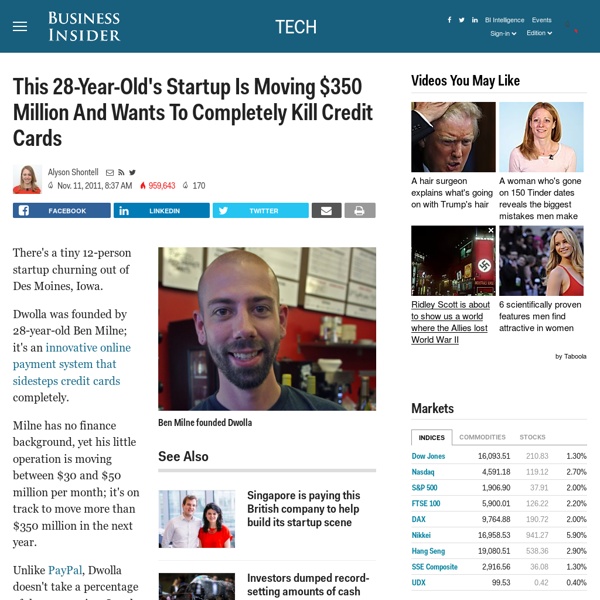The Top Eight Rules of Networking
You know the type. The people with obnoxious laughs, pushy pitches, and the ability to corner you at industry conferences and talk about themselves continuously for what seems like hours? The ones who clearly mean well, but their lack of etiquette can make you wish you hadn't even gone? Here's a friendly suggestion: Don't be that person. Networking is a critical part of any job hunt, yet it's probably the easiest thing to get wrong. Knowing a few etiquette guidelines can help you keep your conduct aboveboard, and perhaps ease a few fears about putting yourself in front of the well-connected. Have a Solid Introduction As most know, first impressions count heavily. If you're at a networking event, pay close attention to the groups people have formed around the room. If introducing yourself online, remember to follow in-person social etiquette rules. Don't Confuse People with Your Pitch No one needs to hear your entire work history upon meeting you. Don't Tell a Sob Story Follow Up and Through
Scanadu Raises $2M: “Check Your Body As Often As Your Email”
Meet Scanadu, an innovative health tech startup I daresay you’ll be hearing a lot more from in the future. It’s not the easiest of tasks explaining what the company is building at this point, but let’s call it a personal, mobile, auto-diagnostics product – they refer to it as a Medical Tricorder. Founded in January 2011 by a team of entrepreneurs with diverse backgrounds, the roots of Scanadu actually go way back. One of the company’s founders, and its chief executive officer, is Walter De Brouwer – something of a legend here in Belgian entrepreneurial circles, and beyond. He says he had the basic idea for a personal health monitoring service back in 1999 when he was working at the renowned Starlab research institute, which he jump-started alongside MIT Media Lab founder Nicholas Negroponte. And from watching Star Trek. “Sci-fi stories are business plans in disguise,” De Brouwer tells me, referring to the invention of the mobile phone, which was inspired by the Star Trek communicator.
11 Rules of Compelling Content
Ann Handley Ann Handley is the Chief Content Officer at MarketingProf.com. Who better to ask about writing compelling content? In this extract from Ann’s comprehensive chapter in the Success Secrets of the Social Media Marketing Superstars , she shares her eleven rules for publishing compelling content inspired by E. “Produce great stuff, and your customers will come to you. Rule #1: Compelling content has an objective In the context of business, the juiciest kind of content is created for a purpose, with a business objective in mind. Who does this well : Hubspot . Like what? Rule #2: Compelling content is vendor-agnostic Today’s businesses must think like a publisher of information that meets the needs of its audience. Who does this well : MarketingProfs . Rule #3: Compelling content is trustworthy If your customers are to buy from you, they must first trust you as a good resource of information. Rule #4: Compelling content is engaging Or at least, it speaks plainly. See what I mean?
Top 8 Killer Investor Presentation Points « Raising Capital with Investors
Investors are people just like you and me. They want to know ‘what is it in for me’. The have money to invest because they have successfully earned enough income to put them in the top 5% of the wealthy. They are motivated to invest because they want to give back with the experience and money. Your first presentation should be no longer than 8 – 15 minutes. Back up charts and other visuals can be used to expand on a point. 1. 2. 3. 4. 5. 6. 6. 8. 1. Opening statements should be concise and to the point. Get excited and have passion about your opportunity. Comment: Give a concise and professional overview that gives investors attending some insight as to your organizational skills. “First impressions are very important.” 2. In one or two sentences, state the mission of your business. 3. In a short paragraph, demonstrate to the investors the specific market opportunity or need for your product or service. Sample of Opening & Mission Statements Good afternoon, my name is Tom Jones. 4. 4. 5.
Investor Presentation/ Presenting Template




new way of electronic payments, avoids fees of paypal and credit cards by ziggyhahn Nov 11